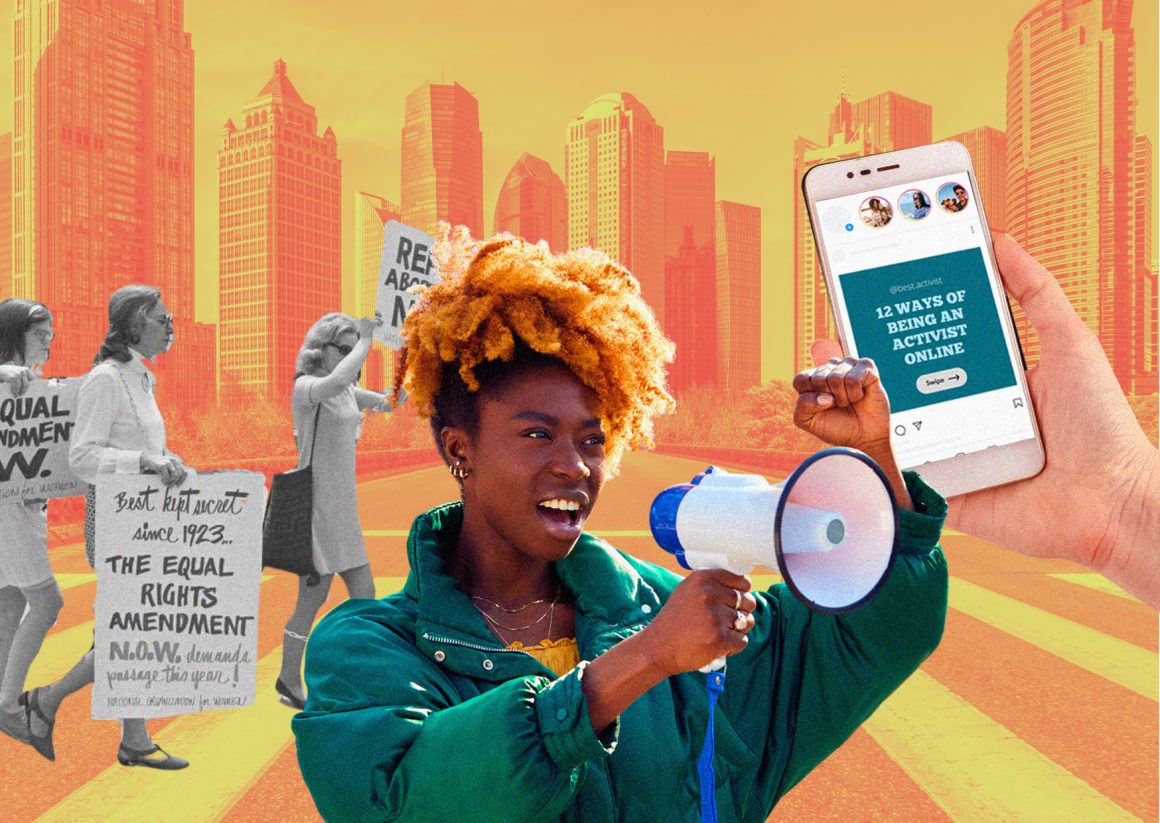
Social media activism and political participation
By Reyam Jamaleddine, March 11 2024—
Typically, my Instagram story is flooded with posts about awareness, information about social justice causes as well as petitions and protest dates. I spend my time scrolling through TikTok, Reels and Twitter liking, sharing and reposting as many information-filled posts as I can. As I tap through the stories of the people I follow, I notice that the vast majority of them are also in pursuit of being politically active through their social media pages.
The validity of this form of activism always seems to be questioned and debated. Slacktivism, sometimes also known as clicktivism, is the term used to describe this method of political participation or as the term would dub it — lack of political participation. Slacktivism is considered an ego-driven and ineffective method of creating political change. Slacktivism is activism that is considered to be slacking because it lacks the tangibility of directly being involved in legislation or legitimate calls to action. Sharing, liking and reposting posts on social media is not seen as valuable in comparison to traditional forms of activism such as protesting, striking and boycotting.
Oftentimes, regular civilians do not have the tools, opportunities or privilege of directly being a part of the legislation process or other legitimate forms of political activism. Social media activism allows individuals who otherwise would not be able to participate politically, independently and legitimately. Information sharing is a form of political participation. Similarly, being aware and educating oneself through the means of online activism is also a legitimate form of political participation. To be slacking is to be negligent and lazy, which is not the entire case for social media activism.
Social media activism today maintains its position as the primary method of information sharing. As journalism continues to be considered a dying field, the sharing of information on current events across the globe imposes its dominance through social media. When news outlets fail to report the news of major current events, social media fills in the gaps. Information sharing can vary in mediums but it can be informative by means of sharing protest dates, boycotting details, information about what the social cause is as well as keeping the public up to date with current events regarding the movement. But in addition to this, information sharing also means sharing photos, videos and audio recordings of triggering and disturbing events as a means of gaining attention from the public, reinforcing the participation of sharing information through social media.
Information sharing is the catalyst for creating change. So although the content that I post does not have a wide outreach or a glaring strong effect on society, it does inform or at least present the opportunity for those around me to choose to be informed. I can post about an upcoming protest knowing that it doesn’t mean that everyone will attend the protest, but at the very least they are aware and informed of this political action. Additionally, the same posts that are up on my page can be continually reposted and shared again reinforcing the avid participation of social media activism.
The Black Lives Matter (BLM) movement has consistently utilized social media as an outlet for information sharing, gathering of a community in the face of atrocity and connecting to determine protest dates. The usage of the Twitter app for this movement assisted in the coverage of breaking news and sharing this information.
It is also important to note that this form of activism taking charge enforces a societal expectation of participation. Those who don’t post to their social media or actively engage in content are deemed to be uncaring individuals. This method of guilt-tripping causes harm in various forms including mental-health problems for those who are pressured into continually posting sensitive information. Information sharing is not just intended for the purposes of continual sharing, rather it fortifies people’s awareness and education on a subject. Sometimes, it is valid to just be a listener. Listening and understanding important political information is equally as significant as actively sharing the information.
As students, social media activism plays an integral role in student governance and student awareness. Where the main medium for university students to gather information is social media, the awareness of campus politics must be founded within this medium. Student governance shares information about ongoing changes to laws within the campus, new initiatives and changes through social media. Similarly, student campaigning mainly occurs through campaigning in the online format.
Tuition hikes, protest dates and community building through political campaigns on campus occur through the sharing and resharing of information on social media. This is a significant method of political participation as well as activism conducted by students on university campuses. This method conveys general society, where perhaps the small society that operates on campus can speak to the strong effect of social media political participation and activism imposed by society as a whole.
In the ever-changing landscape of activism, political participation and social media it should be considered that conceivably information sharing will dominate political participation. Whether or not this form of political participation is deemed to be valid, legitimate or has the ability to enforce change it does not change the fact that information sharing is powerful. Being aware, educated and knowledgeable about key current events is the most powerful tool for a political participant. There are by far significantly more positive results that are rendered from the continual and relentless sharing of posts on social media.
This article is a part of our Voices section and does not necessarily reflect the views of the Gauntlet editorial board.
